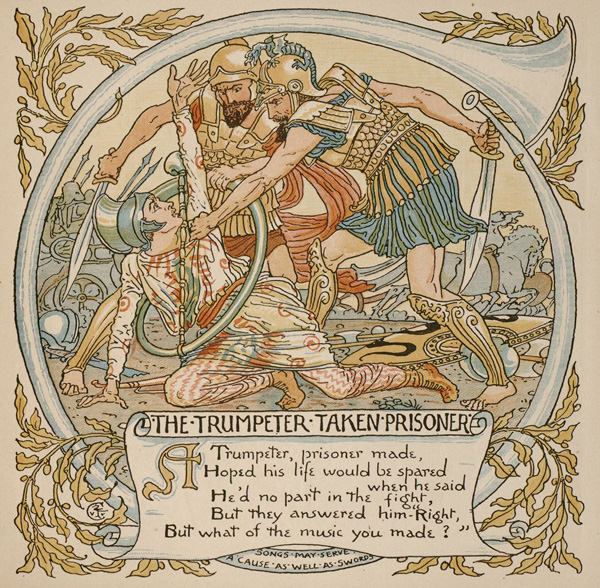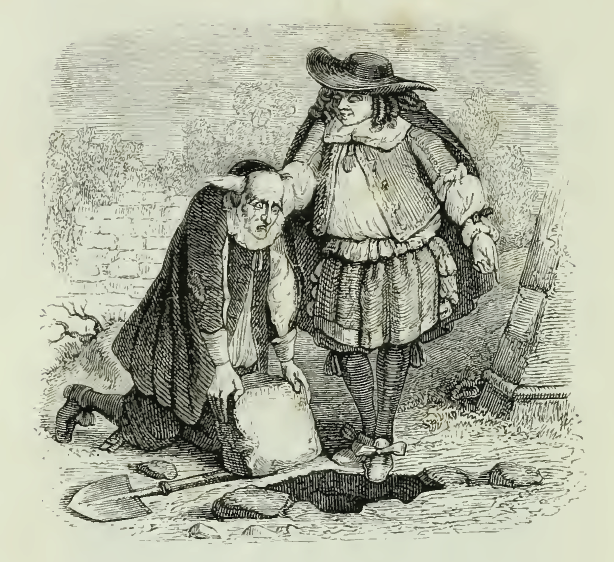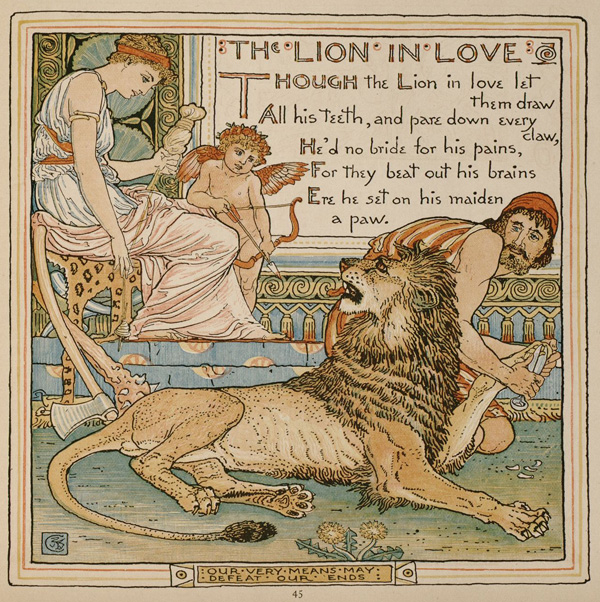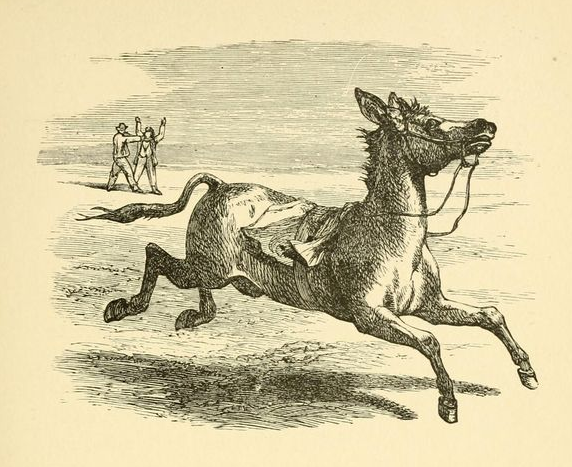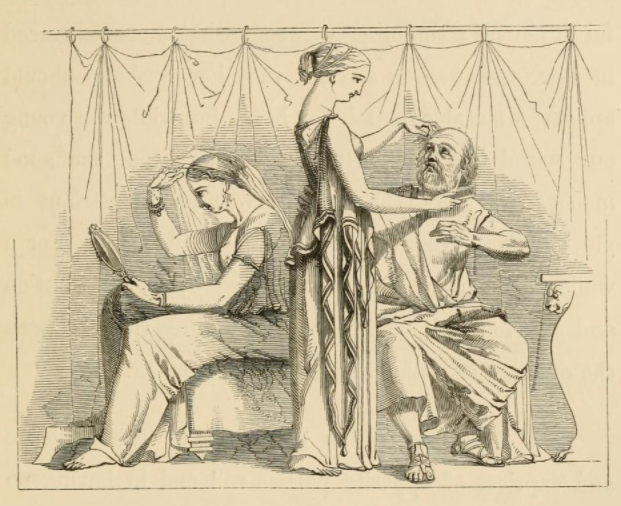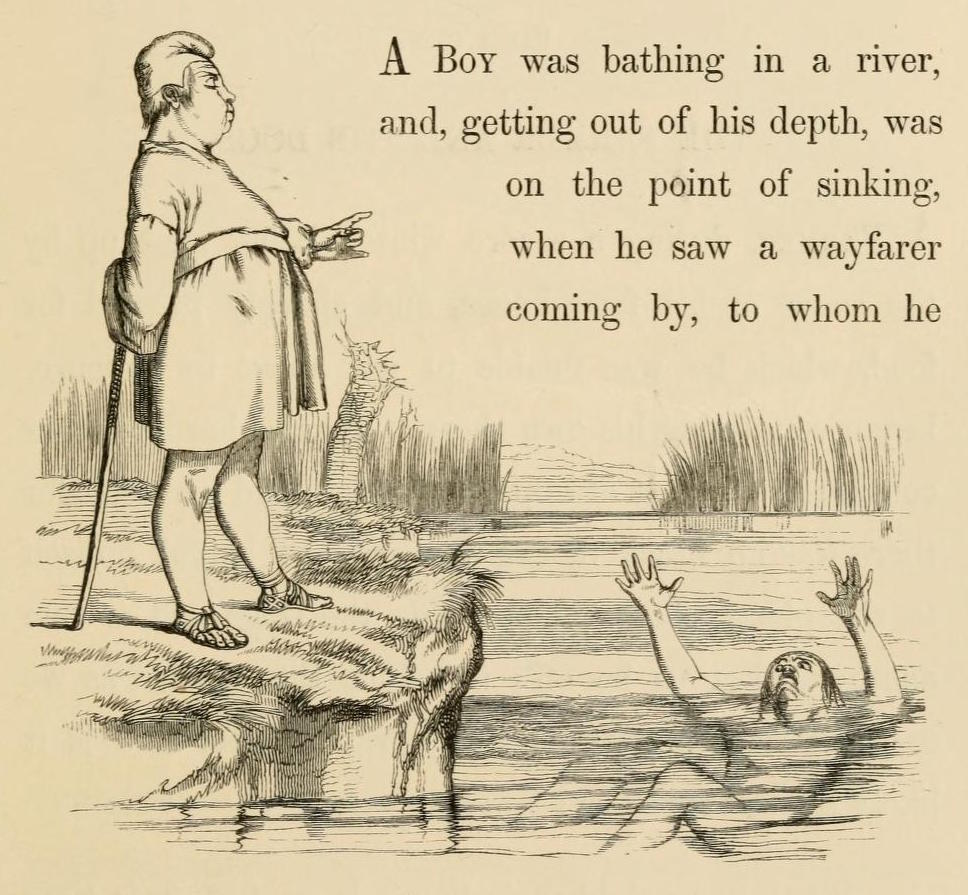Today's stories come from Colson's
Stories and Legends: A First Greek Reader which is available at the Internet Archive. You'll find the stories below, first in Greek, then segmented, and then interwoven with English; the title is linked to the Internet Archive page.
ΤΕΤ. ὦ μύρμηκες, μεταδίδοτε ἡμῖν τῆς τροφῆς. χειμὼν γάρ ἐστι, καὶ λιμῷ ἡμεῖς μὲν πιεζόμεθα, ὑμεῖς δὲ πολὺν σῖτον ἐοίκατε ἔχειν.
ΜΥΡ. καὶ εἰκότως, ὦ τέττιγες, τοῦ γὰρ θέρους ἐπονοῦμεν καὶ πολὺ συνήγομεν· ὑμεῖς δὲ τί ἐποιεῖτε;
ΤΕΤ. ἀλλ' οὐδὲ ἡμεῖς ἐσχολάζομεν. ἤδομεν γὰρ πάνυ μουσικῶς.
ΜΥΡ. ἀλλ᾽ εἰ τοῦ θέρους ηὐλεῖτε, τοῦ χειμῶνος ὀρχεῖσθε.
ΤΕΤ. ὦ μύρμηκες,
μεταδίδοτε ἡμῖν τῆς τροφῆς.
χειμὼν γάρ ἐστι,
καὶ λιμῷ ἡμεῖς μὲν πιεζόμεθα,
ὑμεῖς δὲ
πολὺν σῖτον ἐοίκατε ἔχειν.
ΜΥΡ. καὶ εἰκότως, ὦ τέττιγες,
τοῦ γὰρ θέρους ἐπονοῦμεν
καὶ πολὺ συνήγομεν·
ὑμεῖς δὲ τί ἐποιεῖτε;
ΤΕΤ. ἀλλ' οὐδὲ ἡμεῖς ἐσχολάζομεν.
ἤδομεν γὰρ πάνυ μουσικῶς.
ΜΥΡ. ἀλλ᾽ εἰ τοῦ θέρους ηὐλεῖτε,
τοῦ χειμῶνος ὀρχεῖσθε.
ΤΕΤ. ὦ μύρμηκες ... O ants,
μεταδίδοτε ἡμῖν ... please share with us
τῆς τροφῆς ... some of your food.
χειμὼν γάρ ἐστι ... for it is now winter,
καὶ ἡμεῖς μὲν πιεζόμεθα ... and we are beset
λιμῷ ... with hunger,
ὑμεῖς δὲ ... while you
ἐοίκατε ἔχειν ... seem to have
πολὺν σῖτον ... a lot of food.
ΜΥΡ. καὶ εἰκότως ... And rightly so,
ὦ τέττιγες ... O grasshoppers,
τοῦ γὰρ θέρους ... for during the summer
ἐπονοῦμεν ... we labored
καὶ πολὺ συνήγομεν ... and gathered much.
ὑμεῖς δὲ τί ἐποιεῖτε ... What were you doing?
ΤΕΤ. ἀλλ' οὐδὲ ἡμεῖς ... But we were not
ἐσχολάζομεν ... just relaxing!
ἤδομεν γὰρ ... For we sang
πάνυ μουσικῶς ... quite harmoniously.
ΜΥΡ. ἀλλ᾽ εἰ τοῦ θέρους ... Well, if during the summer
ηὐλεῖτε ... you played music,
τοῦ χειμῶνος ... then during the winter
ὀρχεῖσθε ... you must dance.
νεανίας τις ὄνον ἐμισθώσατο. ἐπεὶ δὲ θερμὸς ὁ ἥλιος ἐγένετο, καταβὰς ἀπὸ τοῦ ὄνου, ἐβούλετο ὑπὸ τῇ σκίᾳ αὐτοῦ καθίζειν. ὁ δὲ μισθώσας οὐκ εἴα. ἔλεξε γὰρ, ὅτι τὸν μὲν ὄνον ἐμίσθωσεν, τὴν δὲ σκίαν οὔ. ὁ δὲ νεανίας εἶπεν, ὅτι ὁ μισθούμενος τὸν ὄνον μισθοῦται καὶ τὴν σκίαν. οἱ μὲν οὖν περὶ τούτου ἤριζον. μαχομένων δὲ ἐκείνων ὁ ὄνος αὐτὸς ἀπἔφυγεν.
νεανίας τις
ὄνον ἐμισθώσατο.
ἐπεὶ δὲ θερμὸς ὁ ἥλιος ἐγένετο,
καταβὰς ἀπὸ τοῦ ὄνου,
ἐβούλετο ὑπὸ τῇ σκίᾳ αὐτοῦ καθίζειν.
ὁ δὲ μισθώσας οὐκ εἴα.
ἔλεξε γὰρ ὅτι
τὸν μὲν ὄνον ἐμίσθωσεν,
τὴν δὲ σκίαν οὔ.
ὁ δὲ νεανίας εἶπεν ὅτι
ὁ μισθούμενος τὸν ὄνον
μισθοῦται καὶ τὴν σκίαν.
οἱ μὲν οὖν περὶ τούτου ἤριζον.
μαχομένων δὲ ἐκείνων
ὁ ὄνος αὐτὸς ἀπἔφυγεν.
νεανίας τις ... A certain young man
ὄνον ἐμισθώσατο ... rented a donkey.
ἐπεὶ δὲ ὁ ἥλιος ... And when the sun
θερμὸς ἐγένετο ... grew hot,
καταβὰς ἀπὸ τοῦ ὄνου ... he got down off the donkey,
ἐβούλετο καθίζειν ... and wanted to rest
ὑπὸ τῇ σκίᾳ αὐτοῦ ... in the donkey's shadow.
ὁ δὲ μισθώσας ... But the donkey-driver
οὐκ εἴα ... wouldn't allow him to do so.
ἔλεξε γὰρ ... For he said
ὅτι ἐμίσθωσεν ... that the man had rented
τὸν μὲν ὄνον ... the donkey,
τὴν δὲ σκίαν οὔ ... but not the shadow.
ὁ δὲ νεανίας εἶπεν ... The young man said
ὅτι ὁ μισθούμενος ... that someone who rented
τὸν ὄνον ... the donkey
μισθοῦται καὶ τὴν σκίαν ... rented the shadow too.
οἱ μὲν οὖν ἤριζον ... And so they argued
περὶ τούτου ... about it,
μαχομένων δὲ ἐκείνων ... and while they argued
ὁ ὄνος αὐτὸς ἀπἔφυγεν ... the donkey ran away.
And here's a random proverb and a random LOLCat too:
